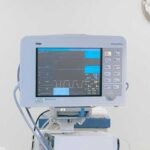
What is Hydropericardium? Why Does the Heart Accumulate Water? Explain the Symptoms and Treatment of Hydropericardium
Hydropericardium refers to the accumulation of water in the heart. If not treated immediately, it can cause pericardial tamponade, leading to shock or death. It is a very serious emergency. We take you through what hydropericardium is, the symptoms of hydrocardium, and how to treat hydropericardium.
What is hydropericardium?
The heart is covered with two layers of pericardium, including the parietal layer and the visceral layer. Under normal circumstances, there is about 15 to 50 ml of pericardial fluid between the two layers, which is responsible for buffering and lubrication. When the pericardial fluid exceeds the normal amount When it occurs, it is hydropericardium, also known as pericardial effusion.
Why does the heart accumulate water?
Hydropericardium may be caused by pericardial-related diseases or a partial manifestation of systemic diseases; statistically, more than 60% of patients are caused by acute pericardium, and the older they are, the more likely they are asymptomatic. The higher the proportion; if hydropericardium attacks repeatedly, tuberculous pericarditis is the most common in Asia, and malignant tumors account for the majority in Europe and the United States.
Possible causes of hydropericardium include:
- Myocardial infarction
- Hypothyroidism
- Infection: tuberculous pericarditis, bacterial pericarditis, viral or mycotic pericarditis, fungal pericarditis and HIV infection
- Bleeding: Trauma, anticoagulant therapy, and leaking aortic aneurysm
- Tumor: neoplasm, lymphoma, or metastatic tumor from lung or breast cancer
- Systemic diseases: rheumatoid arthritis, lupus erythematosus
- Metabolic diseases: uremia, myxedema
- Drug triggers: Procainamide, Hydralazine, Isoniazid, Phenytoin, Doxorubicin and Daunorubicin

Symptoms of hydrocardia vary depending on the cause and the rate of accumulation of fluid.
The symptoms of hydropericardium vary depending on the speed and cause of the effusion; if the perforation is caused by trauma, water will usually accumulate rapidly, causing pericardial tamponade in a short period of time; pericardial tamponade refers to excessive fluid effusion in the pericardium. If it is too much, the pressure will increase, which will compress the heart and lead to psychogenic shock. It is a very dangerous situation!
If it is caused by pericarditis, a large amount of fluid may accumulate in the pericardium before symptoms appear, compressing the heart and causing symptoms of heart failure such as dyspnea, edema, hepatosplenomegaly and jugular venous distention.
Symptoms of mild hydropericardium
Common symptoms of hydropericardium include:
- Exercise induced asthma
- Breathing straight is more comfortable. Lying down makes you prone to breathlessness, chest pain and tightness.
- Nausea caused by compression of the diaphragm, esophagus, and laryngeal nerves
- Hard to swallow
- Hoarse voice, hiccups
Non-specific symptoms include:
- Cough
- Fever
- Weak
- Fatigue
- Anorexia
- Palpitations
- Blood pressure drops
Diagnosis and treatment of hydropericardium
Different causes and speed of fluid accumulation require different treatment methods; if the patient has a lot of fluid accumulation or a rapid increase in fluid accumulation and has developed pericardial tamponade, he should immediately receive pericardiocentesis or pericardial drainage treatment. , to avoid shock and death.
If the patient is hemodynamically stable, the following examinations can be arranged to diagnose the cause and severity:
- Basic blood and biochemical tests
- Electrocardiogram
- Chest X-ray
- Cardiac ultrasound
- Pericardial effusion analysis

Next, the doctor will treat the cause or arrange further examinations; if there is heart failure, priority will be given to treating heart failure. The common causes and treatments of various hydropericardium are as follows:
- Tuberculosis infection was found and anti-tuberculosis drug treatment was prescribed.
- If the disease progresses rapidly and is accompanied by fever, it may be purulent pericardial effusion and should be treated with antibiotics.
- If the patient has end-stage renal failure or uremia, he should be referred to a nephrology department and dialysis arranged.
- If a malignant tumor is suspected, pericardial effusion needs to be examined and chest computed tomography should be considered.
- If the cause is unknown, other tests such as thyroid function, autoimmune antibodies, virology, or chest computed tomography should be ordered to find the cause.












